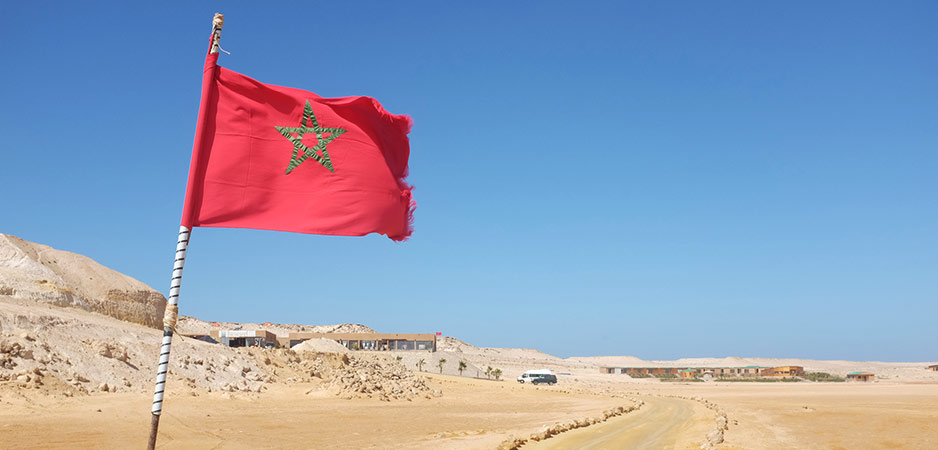Secretary of State Antony Blinken has made one thing clear about the Trump administration’s approach to US foreign policy: It’s going to change. In his first month on the job, Secretary Blinken rescinded former President Donald Trump’s designation of the Houthis as a terrorist group, reaffirmed America’s strategic partnerships and announced plans to rejoin the UN Human Rights Council.
The Winners and Losers of Israel’s Normalization Deal With Morocco
This is just the beginning. Blinken’s predecessor, Mike Pompeo, left what many consider to be an internecine mess on the world stage, and Secretary Blinken could hardly have inherited his department at a more crucial moment. However, between his firm words on the US relationship with China and Russia, Blinken must also give top priority to a lesser-known foreign policy debacle simmering in North Africa: the Western Sahara conflict. Thanks to the Trump administration’s shortsighted acts, this conflict now directly threatens US regional diplomacy and has turned more dangerous than ever.
Trouble in the Sahara
The trouble first began in Western Sahara in the 1970s, when Spain decolonized the territory following pressure from the United States. Neighboring Morocco held secret negotiations with Madrid to take over half of Western Sahara, with the other half going to Mauritania. These plans leaked, to the ire of the Polisario Front, a nationalist rebel group in Western Sahara, and its military wing began a 16-year guerrilla war that ensnared Morocco, Mauritania, Spain, Algeria, France, Libya and the US. Tens of thousands of people died.
Officially, the fighting concluded in 1991 with a UN-brokered ceasefire agreement, which created the United Nations Mission for the Referendum in Western Sahara (MINURSO) to facilitate a solution. Three decades later, that solution has yet to appear, and opportunistic decisions by the Trump administration have now thrown even the ceasefire into doubt.
In fact, hostilities resumed on Trump’s watch. In November 2020, the Polisario Front began blocking commercial trade in the border zone of Guerguerat. In response, Moroccan troops launched a military operation to secure local roads, resulting in sporadic shooting matches and casualties along the berm — a 1,700-mile-long sand barrier Morocco built to contain opposing forces. Polisario top brass immediately condemned the move, lamenting the end of the UN ceasefire. The situation appeared incredibly fragile.
Then in swooped President Trump with the Abraham Accords. Capping off a spate of victories that restored diplomatic relations between Israel and the United Arab Emirates, Bahrain and Sudan, Trump focused his energies on securing the support of Morocco. Rabat agreed to the terms on December 10, in exchange for the United States to finally recognize Moroccan sovereignty over Western Sahara, which became the only country in the world ever to do so.
Diplomatically, Morocco’s participation in the accords won Trump another round of praise from supporters of the state of Israel, to say nothing of Trump’s longtime ally, Israeli Prime Minister Benjamin Netanyahu. But strategically, the Abraham Accords sent a far sharper message in North Africa: Stop the violence. The move to back Moroccan claims of sovereignty signaled America’s commitment to invest greater security resources in Morocco, including in regional peacekeeping to tamp down the Western Sahara conflict. It restyles American support as a high-stakes tripwire in the Maghreb, not to be crossed by either the Polisario Front or Rabat.
Tripwire
The US International Development Finance Corporation’s pledge to invest $5 billion in Morocco, as well as former US Ambassador to Morocco David Fischer’s announcement of a consulate in Dakhla, Western Sahara, began enforcing this tripwire. Nevertheless, this did not stop Polisario fighters from causing more violence in Guerguerat on January 24, launching four rockets at Moroccan targets overnight. Moroccan and American forces dramatically outnumber the rebels in both numbers and weapons, making the January flare-up stunning. However, by disregarding the US conditions and striking Morocco, the Polisario Front has made good on its threats to resume its armed struggle, imperiling both American activities and regional stability in the process.
First, the Polisario Front will likely launch a campaign of low-level tactical aggression in key southern zones, which will force a Moroccan response through either political pressure or military channels. This could lead Morocco to threaten military action. Such a provocation would almost certainly inflame nationalist zeal in Morocco — to which reclaiming Western Sahara is key — and immediately complicate the US role in Dakhla. Finally, Washington will be faced with an awful choice. It will be forced to either support a hawkish, emboldened Morocco or talk Rabat into a position of non-action that will be extremely unpopular domestically and may give a green light to the Polisario Front to wage even broader campaigns.
In other words, the rocket launches in Guerguerat were not wanton decisions by a flailing guerrilla force. They were calculated, deliberate acts by the Polisario Front to test the US tripwire in Dakhla. They drive Washington to the extreme options of reining in its historical ally, sanctioning a new, Morocco-led war in Western Sahara or committing US forces to preserve peace and deal with the problem itself. Put simply, the tripwire failed, and the Polisario Front deftly called America’s bluff. With Trump-era actions laying the groundwork for present developments, the Polisario’s actions effectively begin a broader strategy to weaken the collective defense elements of the US-Morocco alliance.
By injecting himself into the Western Sahara fiasco, with no hindsight or understanding of its history, Trump planted diplomatic and strategic landmines that the Biden administration will need to work tirelessly to defuse. Worse, the former president’s actions have sucked Washington into the unenviable position of enforcing an accidental red line in North Africa, one that the Polisario Front has already, gleefully, crossed. And if Joe Biden sends in troops, it will serve only to raise the ghosts of Vietnam: another drawn-out, faraway engagement in which the United States holds no legitimate best interest.
Secretary Blinken must do more than take “a hard look” at the Abraham Accords. He must rescind the State Department’s recognition of Moroccan control over Western Sahara and allow MINURSO to continue its work. He must renegotiate the Western Sahara provisions of the accords — which former Secretary of State James Baker, former National Security Adviser John Bolton, Senator Jim Inhofe and Western Sahara expert Stephen Zunes have all denounced as mistaken — and join President Biden in rescinding Trump’s proclamation on the topic. He must scrap plans to build a US consulate in Dakhla, and, unless he wants to entangle our troops in an unnecessary foreign incursion, he must do it at once. The stability of North Africa depends upon it.
The views expressed in this article are the author’s own and do not necessarily reflect Fair Observer’s editorial policy.
Support Fair Observer
We rely on your support for our independence, diversity and quality.
For more than 10 years, Fair Observer has been free, fair and independent. No billionaire owns us, no advertisers control us. We are a reader-supported nonprofit. Unlike many other publications, we keep our content free for readers regardless of where they live or whether they can afford to pay. We have no paywalls and no ads.
In the post-truth era of fake news, echo chambers and filter bubbles, we publish a plurality of perspectives from around the world. Anyone can publish with us, but everyone goes through a rigorous editorial process. So, you get fact-checked, well-reasoned content instead of noise.
We publish 2,500+ voices from 90+ countries. We also conduct education and training programs
on subjects ranging from digital media and journalism to writing and critical thinking. This
doesn’t come cheap. Servers, editors, trainers and web developers cost
money.
Please consider supporting us on a regular basis as a recurring donor or a
sustaining member.
Will you support FO’s journalism?
We rely on your support for our independence, diversity and quality.






